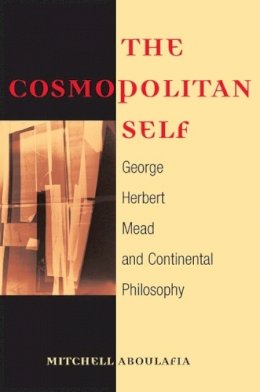8%OFF
Stock image for illustration purposes only - book cover, edition or condition may vary.
The Cosmopolitan Self: George Herbert Mead and Continental Philosophy
Mitchell Aboulafia
FREE Delivery in Ireland
Description for The Cosmopolitan Self: George Herbert Mead and Continental Philosophy
Paperback. Bridging the divide between American pragmatism and contemporary european thought Num Pages: 184 pages. BIC Classification: DSA; HPC. Category: (P) Professional & Vocational. Dimension: 219 x 144 x 13. Weight in Grams: 258.
In this incisive commentary, Mitchell Aboulafia examines the relevance of the American pragmatist philosopher George Herbert Mead to current debates on pluralism, universalism, and the fostering of a democratic temper. Addressing the relationship between Mead's notions of self and society and those of important continental thinkers, The Cosmopolitan Self demonstrates that Mead's ideas not only speak to resolving the tension between universalism and pluralism, they do so in a manner that challenges and advances the positions of these continental theoreticians.
Aboulafia examines how Mead's insights illuminate Hannah Arendt's reading of Immanual Kant's third Critique and Jürgen Habermas's understanding of the relationship ... Read moreamong communicative action, universality, and individuation. Teasing out strands of agreement and disagreement among Mead and these theorists on topics such as impartiality and good judgment, Aboulafia develops a conception of universalism that is compatible with contemporary notions of pluralism. He also addresses the serious challenge presented to Mead's approach to pluralism by Emmanuel Levinas, who holds that true pluralism, presupposing an irreducible individualism, is fundamentally irreconcilable with universalism.
The Cosmopolitan Self offers a model of the democratically inclined individual who embodies both a capacity to establish common ground with others and a sensitivity to their uniqueness. This important volume appreciably advances the dialogue between continental thought and classical American philosophy.
Show Less
Product Details
Publisher
University of Illinois Press United States
Place of Publication
Baltimore, United States
Shipping Time
Usually ships in 7 to 11 working days
About Mitchell Aboulafia
Mitchell Aboulafia is a professor of philosophy at Pennsylvania State University. He is the author of The Mediating Self: Mead, Sartre, and Self-Determination and Self-Winding Circle: A Study of Hegel’s System.
Reviews for The Cosmopolitan Self: George Herbert Mead and Continental Philosophy
"Explicates Mead's concept of the social self. . . . In order to articulate Mead's views, Aboulafia compares his concept of the social self with the understandings of society, self, and politics advanced by such Continental philosophers as Hannah Arendt, Jurgen Habermas, Jacques Derrida, and Emmanuel Levinas. . . . Effectively presents the views of the philosophers."
Choice "German philosophers, notably ... Read moreJürgen Habermas, have been experimenting for years with hybrid pragmatist transplants. Now, Mitchell Aboulafia demonstrates, in four brisk studies, how to breed an even hardier flora, suited to the continental European climate, from George Herbert Mead's original psychological and political plantings. Aboulafia's work is the start of a promising new season!"
Joseph Margolis, author of Historied Thought, Constructed World "Aboulafia's beautifully written work makes a major contribution to the ongoing pragmatism revival. He elaborates lucidly and creatively the vital resources that Mead's thought provides for engaging some of the most intensely debated issues and thinkers in contemporary social theory and for moving beyond the modernist-postmodernist divide."
Robert J. Antonio, author of Social Problems: Values and Interests in Conflict "Original, provocative, wide-ranging, and clear, The Cosmopolitan Self raises issues that are central to multiple philosophical traditions and brings those traditions into contact with each other. It stands at the leading edge of a move within philosophy to cross boundaries between intellectual traditions
and thus is not just a book about pluralism but a performance of that pluralism."
John J. Stuhr, author of Genealogical Pragmatism: Philosophy, Experience, and Community Show Less

